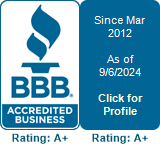The IRS states in Letter 1741 that, "We Received Your Payment Proposal". The IRS uses Letter 1741 for small-dollar cases to delay a payment agreement for you & request that you call them to discuss "income and expense information". This is a similar letter as Letter 2272C.
Respond to Letter 1741
You could call the IRS and most likely you will find there really isn't a problem. But, it is best to be prepared before you call them. The "income and expense information" which the IRS will want is contained in Form 433F. You can use this in conjunction with Form 9465 to request an installment agreement.
The IRS will likely want proof of your income from several paystubs. They usually want to know total household income, even if one of the cohabitants is not responsible for the tax.
For expenses, they want proof of the billings & payments for living expenses. Be prepared to send them all rent or mortgage payments, medical, auto, insurance, child support, etc. If you have access to a fax machine you can handle the whole matter by fax. The IRS does not use E-Mail.
Essentially, since you probably don't owe a huge bill, you'll divide the amount you owe by 72 to arrive at your "streamlined" installment agreement. But, if you show with the Form 433F that you can't pay this amount, you can get a lower agreement.
But, it will take a lot of time & effort to complete the Form 433F properly. Fortunately, our Webinars show you exactly what to gather to prove your case with the IRS!
Further Action
However, this doesn't end the matter. It might be worth looking to see if the bill can be lowered in any way & get an Action Plan for how the debt should be handled. Therefore, please follow the Prep Steps & call J. David Hopkins, JD, LLM for more information!







